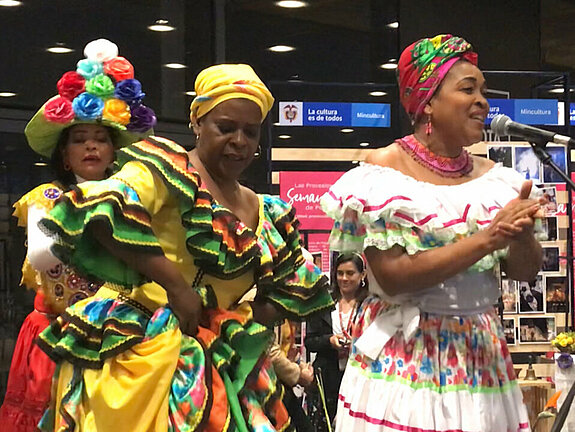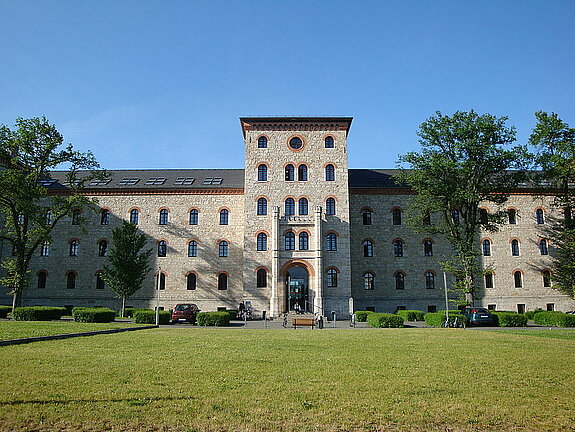Project Partners

Colombia
The Universidad del Valle in Cali, Colombia, is a highly reputable institution of higher learning and research. Founded in 1945, it has developed over the years into one of the leading universities in the country. The university offers a wide range of programs in the fields of humanities, natural sciences, engineering, medicine, and economics. The institution has an international perspective and maintains partnerships with universities around the world.
In addition, the Universidad del Valle is particularly distinguished by its strong cultural engagement. The university promotes both regional and national culture through a variety of activities and projects that are organized jointly by students and faculty members with the local community. One of the central cultural projects of the university is the Center for Cultural Development, which is dedicated to the promotion and preservation of regional culture. The center regularly organizes events such as exhibitions, concerts, and theater performances that incorporate traditional knowledge and expressions of the local population. It also provides a platform for the presentation and discussion of cultural projects and initiatives. Furthermore, the university also supports the work of artists and cultural practitioners by providing facilities and technical equipment. These resources enable them to present and disseminate their work, which in turn contributes to promoting the cultural diversity of the region. Overall, the Universidad del Valle contributes to enriching and supporting the cultural landscape of the Cali region through its cultural engagement. The university is committed to promoting and preserving culture and thus contributes to the development of the local community.

Brazil
The Federal University of Recôncavo da Bahia (UFRB) is a public institution of higher education located in Santo Amaro, in the province of Bahia in Northeastern Brazil. Founded in 1971, it is one of the leading institutions of higher learning in the region, particularly in the fields of natural sciences, technology, and engineering. The UFRB offers a wide range of degree programs in various disciplines such as mathematics, physics, chemistry, biology, geosciences, computer science, electrical engineering, mechanical engineering, and economics. The UFRB has a student population of approximately 30,000 individuals and employs over 1,000 faculty members. The university also has a strong research focus and works closely with industry and the economy. It also boasts a strong international presence, with partnerships and exchange programs with universities around the globe.
Bahia, located in Northeastern Brazil, is a melting pot of cultures and boasts the highest percentage of Afro-Brazilian population in the country. This ethnic diversity is reflected in the vibrant and colorful culture, characterized by numerous customs and traditions. The African influence is particularly pronounced in the Candomblé religion, which is widely practiced in the area. Candomblé is an Afro-Brazilian religion that incorporates elements from various West African religions and whose followers are mostly Afro-Brazilians.
Bahia has a long history of slavery, and African influences can be seen in the music, cuisine, and architecture of the state. In this context, the Federal University of Recôncavo da Bahia (UFRB) is a central cultural and political actor. The UFRB strives to promote the mutual transfer of cultural research and local and regional knowledge through the creation of research projects and international collaborations that focus on the culture and history of the Afro-Brazilian population, as well as through the organization of public events that showcase the local and regional knowledge such as the independent traditions of music, singing, dance and instrument building to the population.
These efforts by the UFRB have received positive public resonance in recent years. These have contributed to the Afro-Brazilian population in Bahia valuing their roots and culture and being presented and conveyed in an adequate audience frame. Through the work of the UFRB, the Afro-Brazilian population in Bahia has been able to connect with its cultural heritage and contribute to the preservation and dissemination of its cultural heritage. The UFRB continues to play an important role in promoting the cultural heritage of Bahia and the Afro-Brazilian population.

Germany
The University of Music Franz Liszt Weimar is one of the most renowned, oldest and largest institutions for music education and research in the German-speaking world. It was founded in 1872 and has acquired an excellent reputation in the international music world over the course of now more than 150 years. The Institute for Musicology Weimar Jena is carried out as a separate department of the college in conjunction with the Friedrich-Schiller University Jena and deals with the research of music in its historical, cultural and social contexts. A special focus of the institute lies on the work of the UNESCO Chair on Transcultural Music Studies. This chair was established in 2008 and specifically deals with the various forms of music in transcultural contexts. It particularly examines the interactions between different musical traditions and the effects of globalization and transculturation processes, such as in relation to migration and displacement dynamics, on music. The objective is to develop a deeper understanding of the cultural diversity of music and its role in society.
The Institute for Musicology Weimar Jena is also part of the Friedrich-Schiller University Jen. The institute offers a wide range of research and teaching fields, such as music history, music, jazz and popular music studies, music aesthetics, music education and music informatics. It is also an important place for the preservation and maintenance of the musical heritage of the region and maintains close relationships with international institutions and music schools. The Institute for Musicology Weimar Jena provides excellent education for students who wish to prepare for a career in musicology. It has a qualified teaching staff and a comprehensive library that provides students access to the latest research results and resources. The Institute for Musicology Weimar Jena and the UNESCO Chair on Transcultural Music Studies contribute to the promotion of music research and the preservation of cultural heritage through their work, thus making valuable contributions to music research far beyond the borders of Europe.
Research
The University of Music Franz Liszt Weimar will conduct an international research project entitled "Circulating Knowledges - Connecting academic and traditional music knowledge in Colombia and Brazil" from 2020 to 2023. The project's collaborative partners are the Universidad del Valle in Cali, Colombia and the Universidade Federal do Recôncavo da Bahia in Santo Amaro, Brazil. The project is supported by the German Academic Exchange Service (Deutscher Akademischer Austauschdienst, DAAD) and is a part of the DAAD's "Subject-Specific Partnerships with Universities in Developing Countries" program. The objective of the project is to enhance and expand teaching in the partner countries, as well as to establish structures and develop capacities at the partner universities.
"Circulating Knowledges" promotes the transfer of knowledge between the academic world and traditional music cultures in Colombia and Brazil. The aim is to examine the intangible cultural heritage in the form of music and performance traditions in Colombia and Brazil in their historical connection to African traditions, document their evolution, and convey them within their respective local contexts.
The cooperative research project "Circulating Knowledges" aims to document, convey, and explore the intangible cultural heritage in the form of music and performance traditions in Colombia and Brazil in their historical connection to African traditions and their evolution. In particular, it aims to promote the transfer of knowledge between the academic world and traditional music cultures in Colombia and Brazil. The musicological focus is on the African elements in the music of South America. New formats will be used to convert traditional music knowledge from the South Pacific and Caribbean region of Colombia and the Brazilian Recôncavo da Bahia into academic formats and languages. Through the collaborative development of field-research-based video learning modules, teachers and students will have the opportunity to stand in lively exchange with carriers of culture and their cultural practice on site.
As part of the DAAD project, numerous symposia, seminars, and excursions as well as the establishment and expansion of archives are also planned. By connecting academic knowledge and traditional music cultures, the project enables a synergistic circulation of various knowledge within and outside of science.
The objective of this project is to achieve a sustainable improvement and expansion of teaching, as well as the formation of structure and the development of capacity at the partner universities in the participating countries. The aim is to support local cultural carriers in their efforts to determine and preserve their own cultural heritage through capacity building throughout the course of the project. A crucial aspect of the project is the connection of communities from two countries whose cultural history is identical in relation to the African origin of music tradition. These communities will be brought to the partner universities and symposia with cultural carriers will be held to enable knowledge transfer between communities in a South-South network and to preserve and convey traditional knowledge. Musical practices will be examined as social phenomena in every geographical and ecological environment.
The approach pursued is transcultural, relying on the plurality of cultures and not on the authenticity of an absolute nation or a single cultural existence. The research goals are based on the recognition of the interdependencies of ecological, social, economic, and cultural sustainability. The project is oriented towards the idea that sustainable development is defined as an ordering principle for the compilation of human development goals, supporting natural resources as provided by ecosystem services. In cooperation with the Brazilian and Colombian partner universities, numerous symposia, seminars and excursions as well as the establishment and expansion of archives are planned.
The UNESCO Chair "Transcultural Music Studies" of the Franz Liszt University of Music Weimar coordinates this four-year research project.